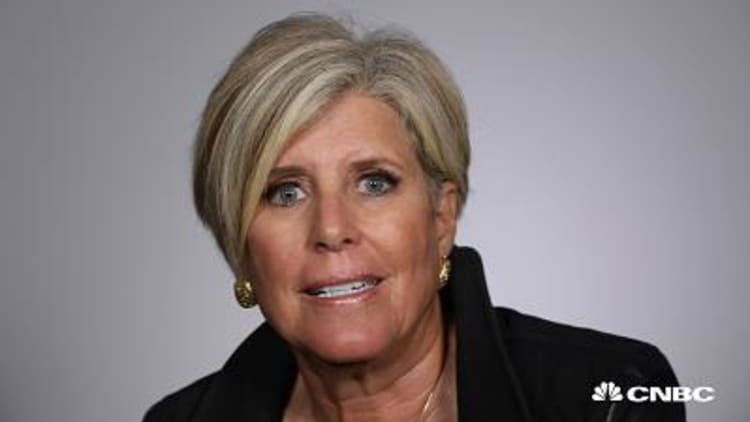Americans are falling behind on retirement savings, and the statistics are troubling.
Those between the ages of 55 and 64 who have retirement savings only have a median of $120,000 socked away, Bankrate reports in a new survey, citing data from the Federal Reserve. That's only 12 percent of the $1 million many experts recommend, and it's worth noting that even that doesn't stretch as far as it used to.
Those aged 65 to 74 aren't doing much better: They have a median of $126,000 saved in retirement accounts. That "won't last long in the absence of paychecks," the survey notes.

Many experts recommend having at least seven times your annual salary saved by 55, which means American households earning $57,617, the median income in the U.S., should have at least $403,319 socked away by that age. By retirement at age 67, that number rises to 10 times your salary. That's about $576,000 for anyone earning around the median U.S. income.
Only 16 percent of Bankrate's survey respondents say that they save more than 15 percent of what they make at all, which is what many experts recommend. A quarter of respondents report saving between 6 and 10 percent of their income and 21 percent say they sock away 5 percent or less.
Additionally, 20 percent of respondents say they don't save any of their income, period.
To ensure that you'll have enough to comfortably cover your expenses in retirement, it's important to start investing as early as you can. For most people, contributing to an employer-sponsored 401(k) plan is the simplest way to start saving for retirement. If your employer offers a match, you're essentially getting free money.
If your company doesn't offer a 401(k) plan, or even if it does, consider other helpful, tax-advantaged retirement funds such as a Roth IRA or traditional IRA. Read up on the different types of retirement accounts here.
Anyone looking to lower their expenses can consider downsizing their home, trimming their grocery bill or making it a priority to eliminate debt. And those with the capacity to take on additional work can bring in extra cash by renting out spare rooms, reselling items online or taking on freelance work. Here's how much the most common side hustles pay.
Don't miss:
- Over half of Americans think you must earn $1 million a year to be rich—here's what it really takes
- Here's how many Americans don't have access to a 401(k) plan
- 65% of Americans save little or nothing—and half could end up struggling in retirement
Like this story? Like CNBC Make It on Facebook!




